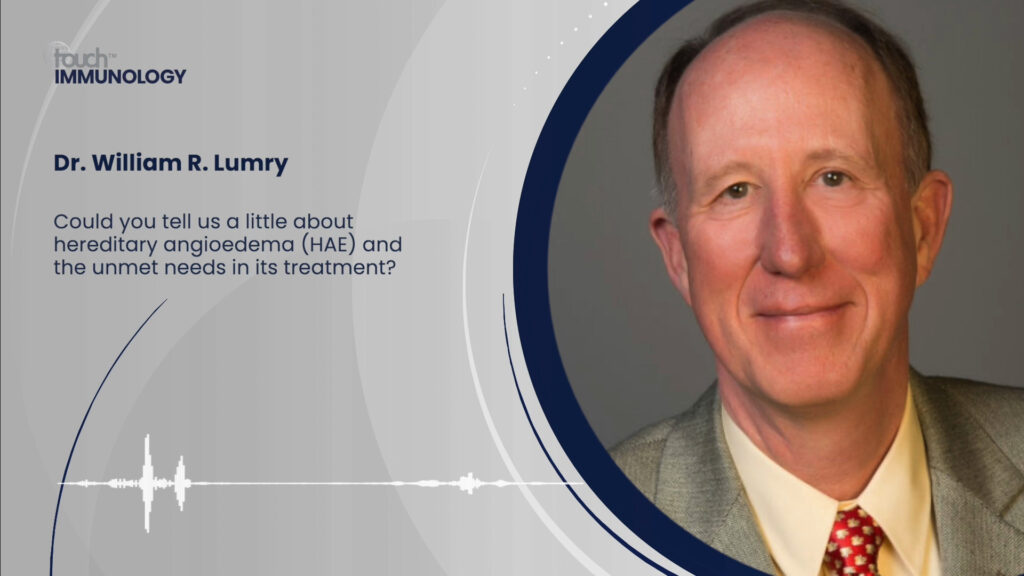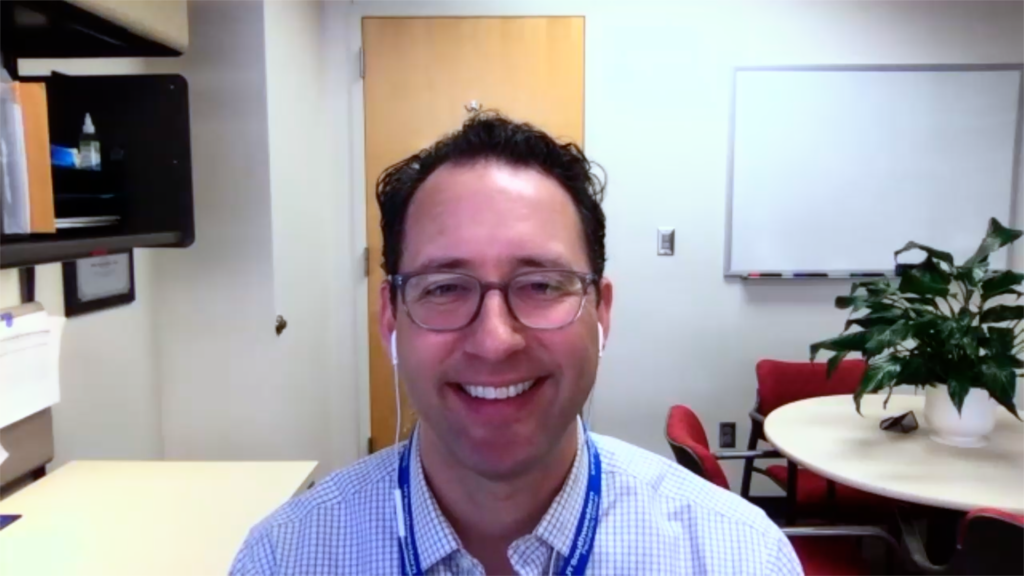Mannan conjugated birch pollen allergoids are an immunotherapy currently under clinical investigation for the treatment of birch pollen allergy. touchIMMUNOLOGY caught up with Prof. Ralph Mösges (University of Cologne, Cologne, Germany) to discuss the rationale and methodology of the the clinical trial programme for Mannan conjugated birch pollen allergoids, the efficacy and safety findings so far from these studies and the questions remaining in the development of Mannan conjugated birch pollen allergoids.
The abstract ‘Clinical Development of Mannan conjugated birch pollen allergoids for the treatment of birch pollen allergic patients – from first-inhuman to approval in 3 studies.’ (Abstract number: L32) was presented at AAAAI 2023, February 24–27, 2022, #AAAAI2023.
Questions
- What is the rationale for investigating Mannan conjugated birch pollen allergoids in birch pollen allergy? (0:34)
- Could you give us a brief overview of the clinical trial programme for Mannan conjugated birch pollen allergoids? (1:32)
- What efficacy and safety findings have come from these studies so far? (3:44)
- What questions remain unanswered and what future studies are planned? (6:42)
Disclosures: Ralph Mösges discloses consulting for, receiving grant/ research support and honoraria from, and participating in speaker’s bureaus for Inmunotek.
Support: Interview and filming supported by Touch Medical Media Ltd. Interview conducted by Victoria Jones.
Filmed in coverage of the American Academy of Allergy Asthma & Immunology Annual Meeting 2023.
Click here for more content on allergy.
Transcript
What is the rationale for investigating Mannan conjugated birch pollen allergoids in birch pollen allergy? (0:34)
Adjuvants have been used in allergen immunotherapy since about 50 to 70 years ago, the most common adjuvant is elm and there are other adjuvants, which have established their use for quite some time. Mannan is a new adjuvant and this increases or induces a more intense interaction between the allergen, which is given usually subcutaneously or sublingually, and the allergen presenting cells, the so-called dendritic cells. And by that less concentrations and fewer injections are needed to induce this disease-modifying effect.
Could you give us a brief overview of the clinical trial programme for Mannan conjugated birch pollen allergoids? (1:32)
This program, which was initiated by the Spanish company Inmunotek, started about 10 years ago with the preclinical work. The first clinical study was set up in 2014 and it was focusing on grass pollen allergy and assessing at the same time the sublingual route and the subcutaneous route. The results of this dose finding study have been presented at the annual meeting of the European Academy of Allergy, Asthma and Clinical Immunology last year in Prague and thereafter in this complete program, the company also focused on house dust mite allergy and dose finding clinical trials with very good results, which are now already published and has been conducted some years ago. The last phase, the development of birch specific allergen immunotherapy with Mannan as an adjuvant that’s been started some three years ago and we now have the results of the first in human study, which we also present here at the American academy, which was a dose finding study. There are two more studies of phase 3 that have been conducted so that we now can say we have a wide range of robust data demonstrating the efficacy and safety and tolerability of this allergen specific immunotherapy.
What efficacy and safety findings have come from these studies so far? (3:44)
The results which we show here are impressive also when compared with other developments that are currently undergoing and what we can show here from an efficacy point of view in the mid-scale phase 3 study, not one of these big mega studies with more than 1,000 patients. We have conducted this study in approximately 300 patients and can see significant effects when comparing the actively treated group with placebo group. The difference is 35%, which is unusual for just five injections or treatment visits, but not only the symptoms and the medication need is reduced, but we also see a significant improvement in the quality of life of patients treated with this active component in comparison to placebo. And on the other side, you know, every medal has two sides from the tolerability point of view, there were only a few drop-outs for tolerability or safety issues. There are indeed no safety issues with this treatment. Not one patient out of 500 that underwent the treatment needed adrenaline or epinephrine injections and so, the side effects were usually mild and there has been no anaphylaxis grade three or four. Some few cases about 2% of patients experienced a grade two systemic effect, which means had some dyspnoea but this was a passenger and it usually disappeared under an oral treatment with some anti-allergic drug. From the tolerability point of view, the application site reactions were there, but they were also mild, only a handful of patients had larger local side effects. In total, one can say this is an unusually effective new form of short-term subcutaneous immunotherapy and on the other hand, it is well-tolerated and safe in the application.
What questions remain unanswered and what future studies are planned? (6:42)
We have now conducted three seasons or three pre-seasonal courses of injections in about 100 patients. So, what needs to be studied and this will be our task for this year, is how patients will behave and how symptoms and medication need will develop in the year after this full course of allergen specific immunotherapy with Mannan. So, we are conducting this study in birch pollen allergic patients in Germany this year in April 2023. And these results will be available probably in June/July and then we know whether we can say that this short-term treatment is also disease-modifying and has this sustained effect.
Subtitles and transcript are autogenerated.









